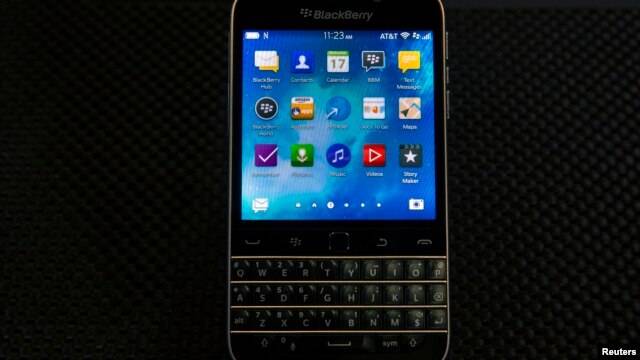Brew Rankins
Rookie
- Nov 18, 2014
- 1
- 0
- 1
Blackberry Passport officially rolled in Indonesia by offering a variety of advantages. Starting from the unique shape, the touch screen (touch-enabled screen) large box shaped 1:1 ratio and the latest operating system OS 10.3 BlackBerry.
To support the distribution of BlackBerry do bundling cooperation with the major telecom operators in Indonesia, namely Indosat and XL Axiata do a pre-order.
Senior Country Product Manager Blackberry Southeast Asia, Ardo Fadhola argued, for consumers who are already pre-order the BlackBerry Passport can be taken on November 14, 2014 Indosat and XL.
As for exclusively Indosat and XL customers who do not do pre-order, get a start 16 November could be available in the BlackBerry Lifestyle store and through authorized distributors in Telematics Artha Mandiri (TAM). "BlackBerry Passport is priced quite high due to the market targeting business professionals," he said on the sidelines of the launch of the Blackberry Passport in Jakarta Tuesday (11.11.2014). BlackBerry took Indosat and XL, where both carriers have to offer the same price of Rp9.6 million. "
Indosat give loyal customers / consumers with a new postpaid package Matrix Super Plan, while providing bundling XL but with the option to pre-order merchants through jeruknipis and elevania, "he said. Meanwhile, the CEO of PT Indosat, Alexander Rusli expressed Indosat Blackberry Passport very happy presence in Indonesia, in response to pre-order program Indosat's wonderful. "Many of our customers are BlackBerry cannot wait to have a Passport.
Indosat always supports the BlackBerry and are committed to providing the best experience and enterprise solutions to our customers, "he explained. Furthermore, the CEO of PT XL Axiata, Hasnul Suhaemi stated, XL congratulated on launching BlackBerry Blackberry Passport.
A blackberry device has become an important part of the portfolio XL devices since they are present in Indonesia. "The opening of the BlackBerry Passport will support us in providing data services to our customers. We will continue to support such innovative mobile solutions offered by BlackBerry, "he added.
To support the distribution of BlackBerry do bundling cooperation with the major telecom operators in Indonesia, namely Indosat and XL Axiata do a pre-order.
Senior Country Product Manager Blackberry Southeast Asia, Ardo Fadhola argued, for consumers who are already pre-order the BlackBerry Passport can be taken on November 14, 2014 Indosat and XL.
As for exclusively Indosat and XL customers who do not do pre-order, get a start 16 November could be available in the BlackBerry Lifestyle store and through authorized distributors in Telematics Artha Mandiri (TAM). "BlackBerry Passport is priced quite high due to the market targeting business professionals," he said on the sidelines of the launch of the Blackberry Passport in Jakarta Tuesday (11.11.2014). BlackBerry took Indosat and XL, where both carriers have to offer the same price of Rp9.6 million. "
Indosat give loyal customers / consumers with a new postpaid package Matrix Super Plan, while providing bundling XL but with the option to pre-order merchants through jeruknipis and elevania, "he said. Meanwhile, the CEO of PT Indosat, Alexander Rusli expressed Indosat Blackberry Passport very happy presence in Indonesia, in response to pre-order program Indosat's wonderful. "Many of our customers are BlackBerry cannot wait to have a Passport.
Indosat always supports the BlackBerry and are committed to providing the best experience and enterprise solutions to our customers, "he explained. Furthermore, the CEO of PT XL Axiata, Hasnul Suhaemi stated, XL congratulated on launching BlackBerry Blackberry Passport.
A blackberry device has become an important part of the portfolio XL devices since they are present in Indonesia. "The opening of the BlackBerry Passport will support us in providing data services to our customers. We will continue to support such innovative mobile solutions offered by BlackBerry, "he added.




